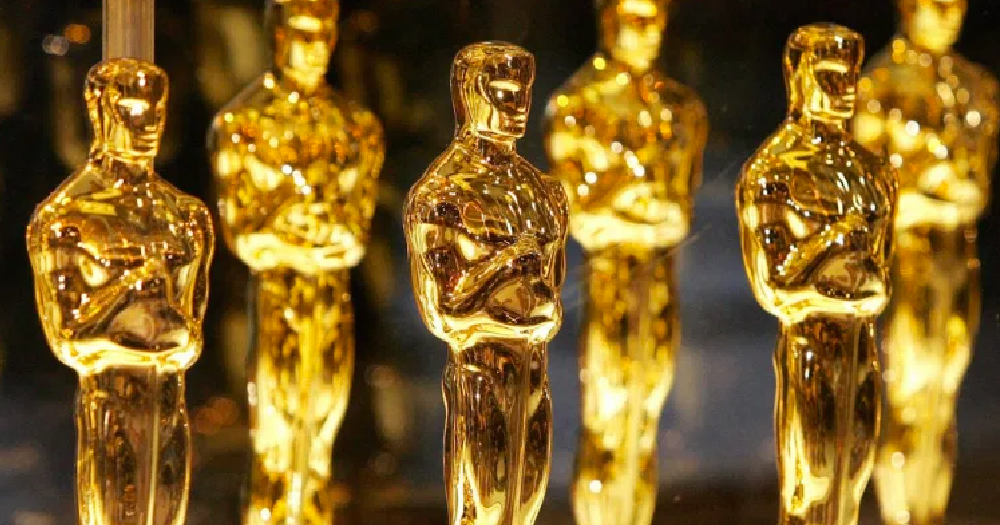The 93rd Academy Awards took place last night with some significant breakthroughs for Asian and female representation but there was little joy for the few LGBTQ+ Oscar nominees in a scaled down ceremony due to the Covid-19 pandemic.
The highlight of the evening was when Nomadland‘s Chloé Zhao made history as the first non-white woman and second woman ever to win best director, with the film winning three Oscars overall.
The film Ma Rainey’s Black Bottom which featured Viola Davis as the bisexual lead, alongside Chadwick Boseman in his final film before his death, was the frontrunner for LGBTQ+ Oscar recognition. However, it missed out on the main awards with Anthony Hopkins a surprise winner Best Actor ahead of Boseman.
The Best Actor award had taken the place of Best Picture to be the last one of the evening as producers had likely expected Boseman to pick up the gong posthumously as he had swept every other acting award during the season. Viewers were left unimpressed with a very awkward end to the ceremony as Hopkins was neither at the ceremony in Los Angeles or on a video link to accept the prize.
The Oscars were so sure that Chadwick Boseman was going to win that they REARRANGED THE ENTIRE CEREMONY so his category could be last, and then they gave the award to Anthony Hopkins instead…the most chaotic and unhinged thing I've ever seen.
— Spencer Althouse (@SpencerAlthouse) April 26, 2021
The film was successful though in the Oscars for Best Makeup and Hairstyling and Best Costume Design. The former was the first time Black women have won the award, with Mia Neal and Jamika Wilson being honoured alongside Davis’ makeup artist Sergio Lopez-Rivera.
“I stand here, as Jamika and I break this glass ceiling, with so much excitement for the future,” said Neal in her acceptaance speech before outlining her hopes for future diversity at the Oscars. “I can picture Black trans women standing up here, and Asian sisters, and our Latina sisters and Indigenous women.
“And I know that one day it won’t be unusual or groundbreaking – it will just be normal.”
Elsewhere, one of the only openly LGBTQ+ nominees, Travon Free won the Best Live Action Short Oscar for his film Two Distant Strangers. The movie was inspired by the murder of George Floyd by an American policeman and was about a Black man stuck in a time loop forcing him to relive a fatal interaction with a cop.
Free gave a powerful acceptance speech where he spoke out against police brutality towards black people. He quoted James Baldwin saying: “The most despicable thing a person can be is indifferent to other people’s pain,” and concluded by asking people to “please not be indifferent. Please don’t be indifferent to our pain.”
Moved from the usual venue in Hollywood’s Dolby Theatre to Los Angeles’s Union Station because of the pandemic, critics were unimpressed with the ceremony. The Hollywood Reporter’s Scott Feinberg felt it was a fitting location for the ceremony given “it was, in some ways, a trainwreck“.
TV Line dubbed the event “a painfully earnest snoozefest”, while IndieWire called it an “insiders’ awards show [that] collapsed under its own weight”.
The Academy does have plans to increase diversity from under-represented groups in the future. Beginning in 2024, for the 96th Oscars, a film submitting for Best Picture will need to meet the inclusion thresholds by meeting two of the four standards. Examples of some of the standards that will be used are at least one of the lead actors or significant supporting actors being from an underrepresented racial or ethnic group and at least 30% of the film’s crew being from groups such as the LGBTQ+ community.
© 2021 GCN (Gay Community News). All rights reserved.
Support GCN
GCN has been a vital, free-of-charge information service for Ireland’s LGBTQ+ community since 1988.
During this global COVID pandemic, we like many other organisations have been impacted greatly in the way we can do business and produce. This means a temporary pause to our print publication and live events and so now more than ever we need your help to continue providing this community resource digitally.
GCN is a registered charity with a not-for-profit business model and we need your support. If you value having an independent LGBTQ+ media in Ireland, you can help from as little as €1.99 per month. Support Ireland’s free, independent LGBTQ+ media.

comments. Please sign in to comment.